Related Research Articles

The Cape Times is an English-language morning newspaper owned by Independent News & Media SA and published in Cape Town, South Africa.
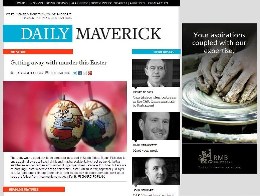
Daily Maverick is a South African online news publication and weekly print newspaper, with offices in Cape Town and Johannesburg. It claims to have a readership of approximately 10 million readers per month. It was founded in 2009 by Branislav Brkic, who is also the Editor-in-Chief of the publication, and Styli Charalambous, its Chief Executive Officer.
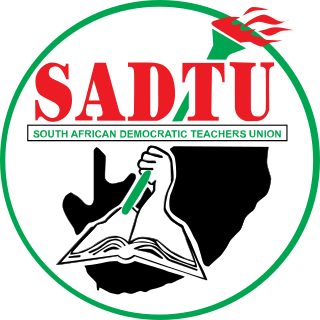
The South African Democratic Teachers Union (SADTU) is the largest trade union for teachers in South Africa. It is allied to the African National Congress and is an affiliate of the Congress of South African Trade Unions (COSATU).

DRUM is a South African online family magazine mainly aimed at black readers, containing market news, entertainment and feature articles. It has two sister magazines: Huisgenoot and YOU.
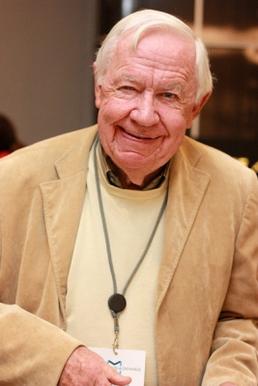
Allister Haddon Sparks was a South African writer, journalist, and political commentator. He was the editor of The Rand Daily Mail when it broke Muldergate, the story of how the apartheid government secretly funded information projects.
Nathaniel Ndazana Nakasa better known as Nat Nakasa was a South African journalist and short story writer.
Gwen Lister is a Namibian journalist, publisher, anti-apartheid and press freedom activist.
Alfred Khumalo, better known as Alf Kumalo, was a South African documentary photographer and photojournalist.
Alide Dasnois is a South African journalist and newspaper editor.
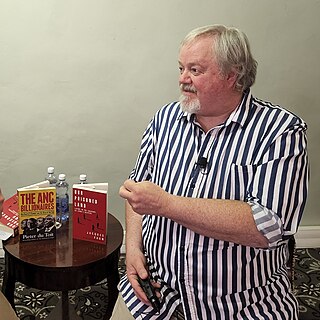
Jacques Pauw is a South African investigative journalist who was an executive producer of the Special Assignment current affairs programme on SABC. Pauw was a founding member and assistant editor of the anti-apartheid Afrikaans newspaper Vrye Weekblad. He began his television career in 1994, specializing in documentaries around the African continent.

Max du Preez is a South African author, columnist and documentary filmmaker and was the founding editor of Vrye Weekblad. Vrye Weekblad Online or Vrye Weekblad II was launched on 5 April 2019 again with Max du Preez as editor.
Martin Welz is a South African journalist and the editor of Noseweek magazine. He is best known for his investigative work on controversial issues including government and corporate corruption.

Leonard Mzilikazi Ndzukula, better known as Mzilikazi wa Afrika, is a South African investigative journalist who worked for the Sunday Times newspaper. He resigned with a colleague, Stephan Hofstatter, in October 2018 after the newspaper publicly apologised for a number of stories they wrote between 2011 and 2016 which were found to be not reflecting an honest truth. He is a multi-award winning journalist, a music producer and also the author of Nothing Left to Steal.
Zwelakhe Sisulu was a South African black journalist, editor, and newspaper founder. He was president of the Writers' Association of South Africa, which later became the Black Media Workers Association of South Africa, and he led a year-long strike in 1980 for fair wages for black journalists. Under apartheid, he was imprisoned at least three times for his journalism. After apartheid ended, he became the chief executive officer of the South African Broadcast Corporation.

Sekunjalo Investment Holdings (parent company of African Equity Empowerment Investments) is a black owned South Africa-based private equity firm specializing in acquisitions, PIPEs, and buyouts. It has principal operations in publishing, Internet, fishing, healthcare, pharmaceuticals, telecommunication, financial services, aquaculture, biotechnology, enterprise development, events management, travel. The company was founded by Iqbal Survé in 1996 with the aim of investing and assisting Black-owned businesses. In April 2015 all of Sekunjalo's investments except its 55% ownership in Independent Media SA was spun-off into a new company, still owned by Sekunjalo Investments, known as African Equity Empowerment Investments (AEEI).
GroundUp is a South African-based not-for-profit news agency. It publishes most content under a creative commons license and is known for its focus on public interest stories within vulnerable communities with a "bottom-up" style of reporting. Their content is regularly reprinted and featured in other South African news publications such as the Daily Maverick, News24, and Mail & Guardian. The publication was founded in 2012 by Nathan Geffen, a former Treatment Action Campaign member.
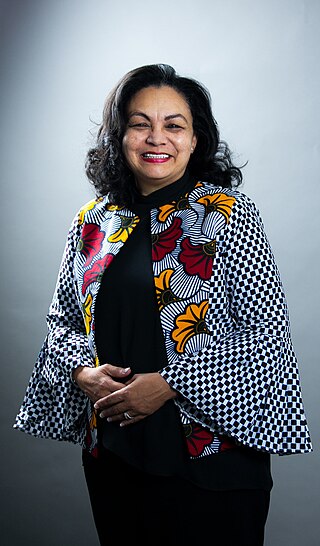
Paula Maria Fray born April 6, 1966 is a South African journalist, entrepreneur and media development trainer. She was also the first female editor of South Africa’s Saturday Star newspaper.

Jonathan Ancer is a South African journalist, author, podcaster and media trainer. He wrote Uncovering Craig Williamson, which was on the longlist for the Alan Paton literary prize. Ancer wrote Betrayal: The Secret Lives of Apartheid Spies which was released in 2019.
The South African National Editors’ Forum (SANEF) is a South African-based non-profit membership organisation for editors, senior journalists and journalism trainers. The SANEF supports South African journalism through a number of activities ranging from public statements supporting media freedom, running training programs for journalists, writing policy submissions to government, to sponsoring and conducting research into the state of the media in South Africa. The SANEF runs the annual Nat Nakasa award that recognises media practitioners that have improved South African journalism.
Piet Mahasha Rampedi is a South African investigative journalist who was the editor of Pretoria News from 2021 to 2023. He has also worked at the City Press, Sunday Times, Sunday Independent, and as the founder and editor of African Times. He began his career in broadcast journalism in 2002.
References
- 1 2 3 4 5 6 7 8 9 10 11 12 13 14 15 Brown, Ryan Lenora (November 2011). "A Native of Nowhere: The Life of South African Journalist Nat Nakasa, 1937–1965". Kronos. 37 (37): 41–59. JSTOR 41502444. – via JSTOR (subscription required)
- 1 2 3 4 "Sanef: we do not choose Nat Nakasa award winners". SAPA. The Citizen. Retrieved 27 July 2015.
- 1 2 "2015 Nat Nakasa Award for Media Integrity – Call for entries" (PDF). Print and Digital Media SA. Retrieved 26 July 2015.
- ↑ Digital, Tmg (10 July 2016). "Eight SABC journalists who spoke up against Hlaudi receive award for courage". The Sowetan. Retrieved 18 July 2016.
- ↑ "Sipho Masondo wins 2017 Nat Nakasa award". The Citizen. African News Agency. 11 June 2017. Retrieved 12 June 2017.
- ↑ "Branko Brkic wins Nat Nakasa Award – SANEF". politicsweb. SANEF. 25 June 2018. Retrieved 7 July 2018.
- ↑ Levitt, Jessica (24 June 2019). "Sunday Times journalist wins prestigious award for bravery, highlights mental health issues". SowetanLIVE & Sunday World. Retrieved 2 July 2019.
- ↑ Malgas, Bertram. "SANEF honours South African journalists with Nat Nakasa Award for work on Covid-19 frontline". News24. Retrieved 20 September 2020.
- ↑ "Nat Nakasa Award Winners 2021 Announced: Celebrating 23 years of courageous and brave journalism". SANEF. 15 August 2021. Retrieved 19 September 2021.
- ↑ Netshisaulu, Dzudzie (18 September 2022). "SANEF announces winners of the Nat Nakasa Awards 2022 » SANEF | Protecting Media Freedom". SANEF | Protecting Media Freedom. Retrieved 10 October 2022.
- ↑ Geffen, Nathan (18 September 2023). "GroundUp reporters win prestigious journalism award". The Media Online. Retrieved 4 October 2023.
- 1 2 "Media owner 'spits fire' at Sanef awards". TMO Reporter. The Media Online. 23 June 2014. Retrieved 27 July 2015.